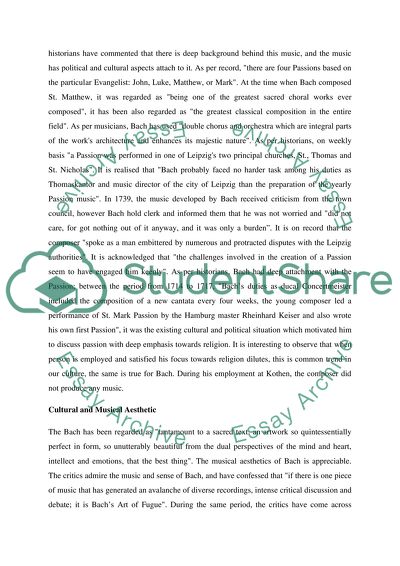Cite this document
(J.S.Bach's Musical Revolution Assignment Example | Topics and Well Written Essays - 1250 words, n.d.)
J.S.Bach's Musical Revolution Assignment Example | Topics and Well Written Essays - 1250 words. Retrieved from https://studentshare.org/music/1503689-johann-sebastian-bach
J.S.Bach's Musical Revolution Assignment Example | Topics and Well Written Essays - 1250 words. Retrieved from https://studentshare.org/music/1503689-johann-sebastian-bach
(J.S.Bach'S Musical Revolution Assignment Example | Topics and Well Written Essays - 1250 Words)
J.S.Bach'S Musical Revolution Assignment Example | Topics and Well Written Essays - 1250 Words. https://studentshare.org/music/1503689-johann-sebastian-bach.
J.S.Bach'S Musical Revolution Assignment Example | Topics and Well Written Essays - 1250 Words. https://studentshare.org/music/1503689-johann-sebastian-bach.
“J.S.Bach'S Musical Revolution Assignment Example | Topics and Well Written Essays - 1250 Words”. https://studentshare.org/music/1503689-johann-sebastian-bach.


